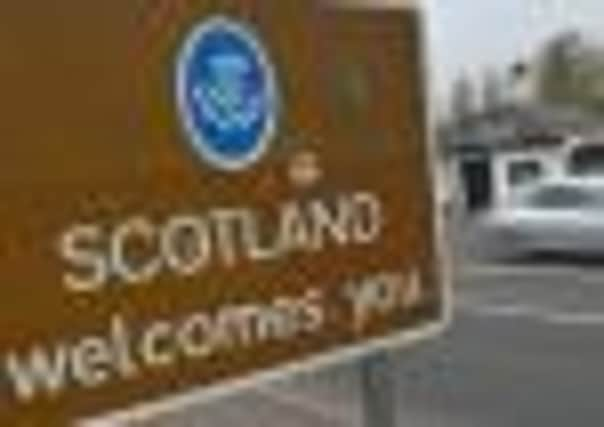Independence: Alert over passports following ‘Yes’


Leading academics say the country’s ability to offer automatic citizenship to those with ties to Scotland – or children born in the country to non-nationals –may be constrained if the country votes Yes to independence next year.
SNP ministers have yet to spell out plans on entitlement to citizenship, but say they want an “open” policy under which anyone born in Scotland, who lives in Scotland, or who has family ties to Scotland would be entitled to a passport.
Advertisement
Hide AdAdvertisement
Hide AdBut experts are pointing to the example of Ireland, which recently had to tighten its own liberal nationality laws following evidence that people were using the rule to gain entry to the European Union. Current UK rules are even tighter, granting automatic citizenship only down one generation of British descendants.
Between 28 and 40 million people claim Scottish ancestry worldwide, according to Scottish Government estimates. Some may want a Scottish passport after independence.
A new book on Scotland’s constitutional future, Scotland’s Choices – serialised in Scotland on Sunday today – argues it would be unlikely that borders would be set up within the British Isles despite Scotland becoming a “foreign” country.
But this would “constrain ability to operate a different immigration policy from England and Ireland and – as the Republic of Ireland has found – this limits Scotland’s capacity to offer citizenship, for example to expatriates or their descendants”.
The book is written by Oxford University Professor Iain McLean, Professor Jim Gallagher, who has advised Scottish and UK politicians on devolution, and Guy Lodge, associate director of the Institute of Public Policy Research.
Professor Bernard Ryan, a migration law expert at Kent University, said: “There would be huge domestic pressure not to have a broad nationality law.”
As to which people living outside Scotland could become citizens, he said: “I think when it comes down to the detail it will start with the current British model. It could go for two generations but I would be astonished if it is more than that.”
Scotland’s Choices, a politically neutral analysis by experts on Scotland’s constitution, offers a comprehensive view of what might happen after the referendum.
Advertisement
Hide AdAdvertisement
Hide AdA Scottish Government spokesman said: “An independent Scotland will manage immigration and citizenship in a way that effectively meets our nation’s economic, social and demographic priorities and needs, and a white paper setting out our detailed proposals on immigration and citizenship will be published in the autumn.”